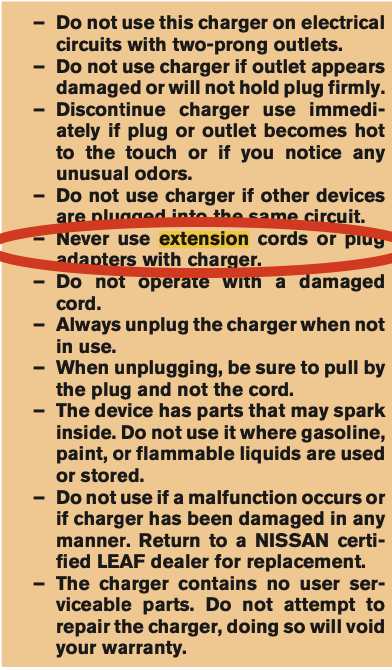Amazing1 said:
In order to charge it would take a 50 ft extension cord that I was going to cover with conduit and bury about 10-12 inches below the surface.
Negative. Do not run an extension cord in conduit. Do not bury an extension cord. The extension cord is the wrong material to use for that purpose.
At a minimum, you can instead take power from the receptacle, perhaps with a box extension that would allow surface mounted conduit to come out of the bottom of the extension. Then run a complete conduit system from there, underground, to a little post with a receptacle box on it (I think that is available as a purpose built all-in-one product). You could protect the circuit extension with a GFCI receptacle at the power source, then you could use PVC conduit and would only need 12" of soil cover (meaning a trench 13" deep if the conduit is 1" outer diameter). Or you could use rigid metal conduit (not EMT) and you'd only need 6" of soil cover, as long as it doesn't pass under a driveway. And of course pull in a wet rated set of conductors of the appropriate size.
If any of the above is not sufficiently familiar to you, you should hire an electrician to do it. But hopefully now you have a better sense of the scope of work and the reasonable options.
Cheers, Wayne
Edit: links are by forum ad software, not by me.

